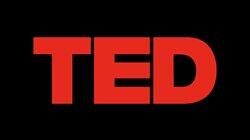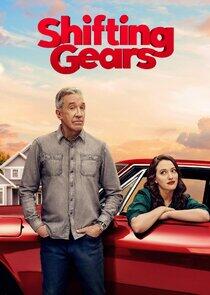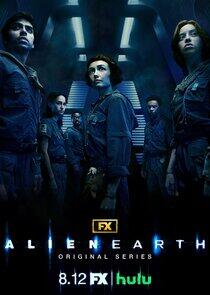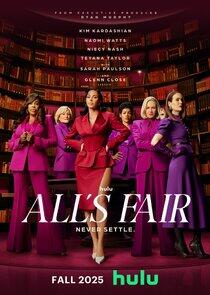TEDTalks - Season 7 / Year 2011

Season 7 / Year 2011

Episodes

Wadah Khanfar: A historic moment in the Arab world

JR's TED Prize wish: Use art to turn the world inside out

Wael Ghonim: Inside the Egyptian revolution

Bill Gates: How state budgets are breaking US schools

Anthony Atala: Printing a human kidney

Salman Khan: Let's use video to reinvent education

Deb Roy: The birth of a word

Lisa Gansky: The future of business is the mesh

David Brooks: The social animal

Janna Levin: The sound the universe makes

Mark Bezos: A life lesson from a volunteer firefighter

Sarah Kay: If I should have a daughter

Isabel Behncke: Evolution's gift of play, from bonobo apes to humans

Eythor Bender demos human exoskeletons

Ralph Langner: Cracking Stuxnet, a 21st-century cyber weapon

Handspring Puppet Co.: The genius puppetry behind War Horse

Sebastian Thrun: Google's driverless car

Eric Whitacre: A virtual choir 2,000 voices strong

AnnMarie Thomas: Hands-on science with squishy circuits

Stanley McChrystal: Listen, learn ... then lead

Morgan Spurlock: The greatest TED Talk ever sold

Mick Ebeling: The invention that unlocked a locked-in artist

David Christian: Big history

Roger Ebert: Remaking my voice

Marcin Jakubowski: Open-sourced blueprints for civilization

Kathryn Schulz: On being wrong

John Hunter on the World Peace Game

Ric Elias: 3 things I learned while my plane crashed

Harvey Fineberg: Are we ready for neo-evolution?

Angela Belcher: Using nature to grow batteries

Mike Matas: A next-generation digital book

Carlo Ratti: Architecture that senses and responds

Suzanne Lee: Grow your own clothes

Louie Schwartzberg: The hidden beauty of pollination

Paul Nicklen: Tales of ice-bound wonderlands

Fiorenzo Omenetto: Silk, the ancient material of the future

Ron Gutman: The hidden power of smiling

Amit Sood: Building a museum of museums on the web

Ed Boyden: A light switch for neurons

Thomas Heatherwick: Building the Seed Cathedral

Elliot Krane: The mystery of chronic pain

Edith Widder: The weird, wonderful world of bioluminescence

Aaron Koblin: Artfully visualizing our humanity

Bruce Aylward: How we'll stop polio for good

Mustafa Akyol: Faith versus tradition in Islam

Dennis Hong: Making a car for blind drivers

Stefan Sagmeister: 7 rules for making more happiness

Aaron O'Connell: Making sense of a visible quantum object

Jessi Arrington: Wearing nothing new

Ron Gutman: The hidden power of smiling

Rob Harmon: How the market can keep streams flowing

Damon Horowitz calls for a moral operating system

Jack Horner: Building a dinosaur from a chicken

Janet Echelman: Taking imagination seriously

Paul Romer: The world's first charter city

Alice Dreger: Is anatomy destiny

JD Schramm: Break the silence for suicide survivors

Rory Stewart: Time to end the war in Afghanistan

Lesley Hazleton: On reading the Koran

Kevin Slavin: How algorithms shape our world

Nigel Marsh: How to make work-life balance work

Annie Murphy Paul: What we learn before we're born

Rebecca MacKinnon: Let's take back the Internet

Danielle De Niese: A flirtatious aria

Richard Wilkinson: How economic inequality harms societies

Hasan Elahi: FBI, here I am!

Justin Hall Tipping: Freeing energy from the grid

Allan Jones: A map of the brain

Elizabeth Murchison: Fighting a contagious cancer

Cynthia Kenyon: Experiments that hint of longer lives

Ben Goldacre: Battling bad science

Daniel Wolpert: The real reason for brains

Jae Rim Lee: My mushroom burial suit

Jarreth Merz: Filming democracy in Ghana

Bunker Roy: Learning from a barefoot movement

Charles Hazlewood: Trusting the ensemble

Alison Gopnik: What do babies think?

Mikko Hypponen: Fighting viruses, defending the net

Abrham Verghese: A doctor's touch

Ben Kacyra: Ancient wonders captured in 3D

Anna Mracek Dietrich: A plane you can drive

Harald Haas: Wireless data from a light bulb

Homaro Cantu + Ben Roche: Cooking as alchemy

Shawn Achor: The Happy Secret to Better Work

Skylar Tibbits: Can we make things that make themselves?

Daniel Goldstein: The battle between your present and future self

Avi Rubin: All your devices can be hacked
Recently Updated Shows

Shifting Gears
Shifting Gears centers on Matt, a stubborn, widowed owner of a classic car restoration shop. When Matt's estranged daughter and her teenage kids move into his house, the real restoration begins.

Alien: Earth
When the mysterious deep space research vessel USCSS Maginot crash-lands on Earth, Wendy and a ragtag group of tactical soldiers make a fateful discovery that puts them face-to-face with the planet's greatest threat.

All's Fair
A team of female divorce attorneys leave a male-dominated firm to open their own powerhouse practice. Fierce, brilliant, and emotionally complicated, they navigate high-stakes breakups, scandalous secrets, and shifting allegiances—both in the courtroom and within their own ranks. In a world where money talks and love is a battleground, these women don't just play the game—they change it.

Brassic
Brassic is about Vinnie, a man from the north of England with bipolar disorder and his best mate Dylan, whose girlfriend Erin decides to leave town. Dylan is faced with the impossible decision between a fresh start with the love of his life or staying behind with his inseparable gang of mates that he can't live without.
